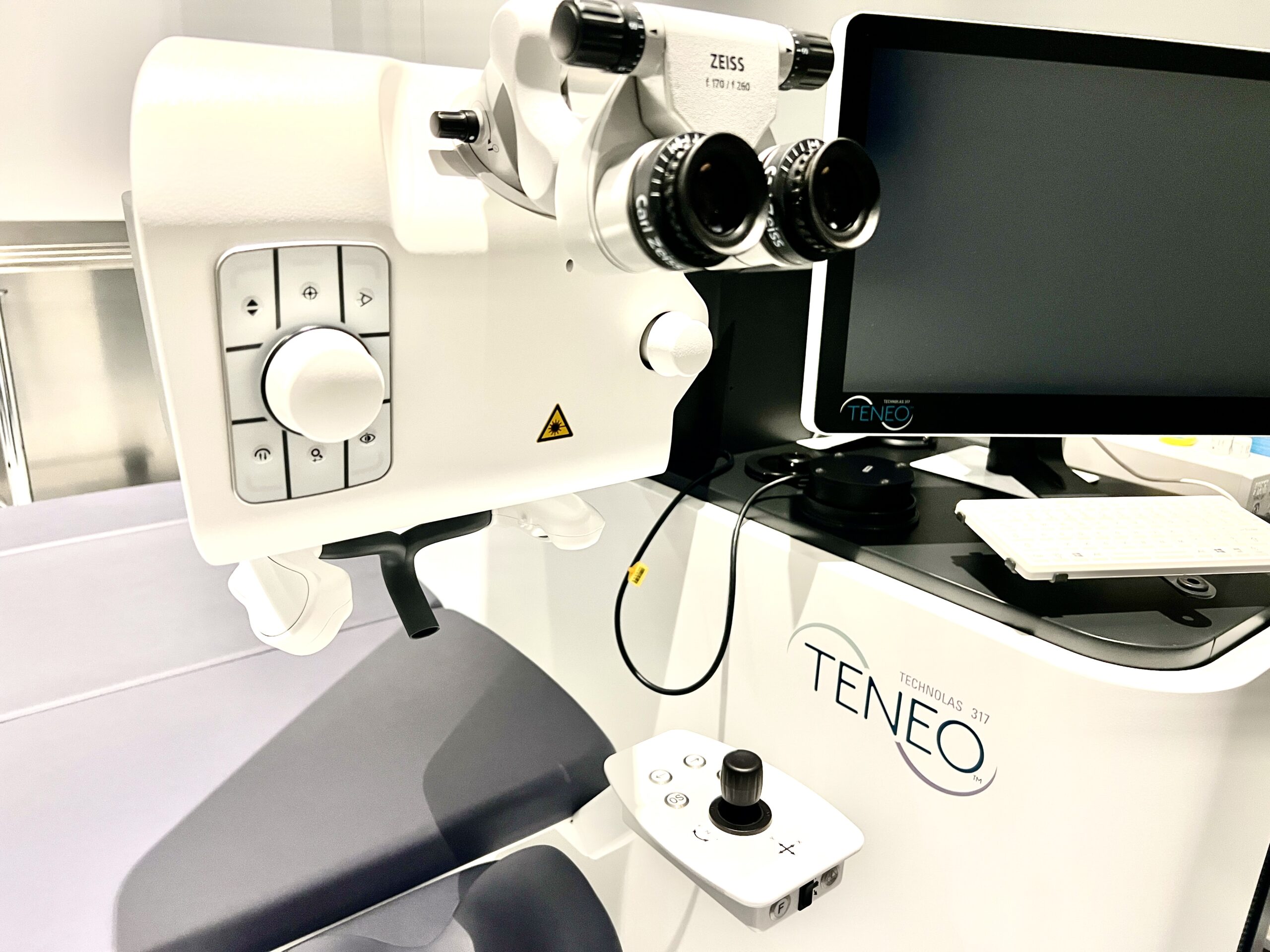Refractive surgery
Recover your vision safely and permanently
Immediate results: Improve your vision from day one.
What is refractive surgery?
Thousands of patients are already enjoying a new quality of life.
How is refractive surgery performed?
It is performed through a series of simple techniques and brief surgical procedures that can be divided into two types:

Laser refractive surgery: This technique uses lasers such as PRK or LASIK, among others, to modify the thickness and/or curvature of the cornea, thus allowing diopter correction.
Refractive surgery with intraocular lenses: This technique involves implanting a phakic or intraocular lens to correct prescription. It is recommended when the degree of myopia, hyperopia, or astigmatism is high, as it exceeds the safety parameters for laser surgery. It involves implanting a lens inside the eye without removing the crystalline lens.
High-definition vision: from screen to real life, without limitations.

How long does the operation take?
It is a very quick surgery, lasting only 10-15 minutes per eye.
What type of anesthesia is used?
For this surgery, topical local anesthesia is used, with eye drops applied directly to the eye. A spacer is placed to prevent the patient from blinking during surgery.

Treatments adapted to each type of visual defect.
When is refractive surgery with intraocular lenses contraindicated?
·If the patient has glaucoma. · If the patient has cataracts. · If the patient has Fuchs’ endothelial dystrophy. · If the patient’s eyes have narrow anterior chambers. · If the patient has pseudoexfoliative syndrome (a condition in which a whitish material accumulates in the anterior region of the eye). · If the patient has iris defects or diseases.

What are the risks of refractive surgery?
Although it is a very safe procedure that in most cases does not present any complications, these are the most common:
· Dry eye (the most common of all)
· Halos around lights. Although they usually occur, they disappear within the first few months.
· Infections (less frequent)
Immediate results and better quality of life
Insurers and Mutual Insurance Companies
Insurers and Mutual Insurance Companies






















































These are some of the mutual insurance companies and health insurance providers we work with. However, the agreement with these mutual insurance companies will depend on the healthcare center.
If your policy doesn’t appear on the list, please don’t hesitate to contact us for more information.
Trustindex verifica que la fuente original de la reseña sea Google. Me operé el 17/6 y estoy contentísima. Empezando por Judith, la recepcionista que tuvo conmigo una paciencia alucinante (si lees esto, gracias) y siguiendo con la doctora Saskia, como siempre tan cercana como profesional, explicandomelo todo y haciéndome sentir tranquila. Ella me explicó la operación en su día, decidí hacérmela y a día de hoy no puedo estar más contenta con su profesionalidad. Todas las mujeres que estuvieron en quirófano ese día, excelentes profesionales, lamento no haber preguntado sus nombres, me hicierion sentir muy cómoda y eso que venía nerviosa.Trustindex verifica que la fuente original de la reseña sea Google. Fantástica, la Dra.Romero es una gran profesional, ojalá fueran tod@s como ellaTrustindex verifica que la fuente original de la reseña sea Google. He acudido al doctor Maisterrena para una cirugía de un quiste y su atención ha sido muy buena, delicado con su trabajoTrustindex verifica que la fuente original de la reseña sea Google. Las visitas suelen tardar de la hora reservada, pero es normal. Están con los pacientes el tiempo necesario para dar buen servicio.Trustindex verifica que la fuente original de la reseña sea Google. Muy bien atendidoTrustindex verifica que la fuente original de la reseña sea Google. Great experience. I was received promptly and the staff as well as Dra. Marin were excellent. She took care and time to explain the outcome of the consultation and the different treatment options -- a rare luxury in healthcare these days. Thrilled to have found this practice.Trustindex verifica que la fuente original de la reseña sea Google. Trustindex verifica que la fuente original de la reseña sea Google. Acudí al doctor Maisterrena por recomendación y la experiencia no podría haber sido mejor. Desde el primer momento, me informó con todo detalle, demostrando una gran profesionalidad, seriedad y rigor. Los procedimientos que me realizó requieren una altísima especialización, y en todo momento me transmitió absoluta confianza. Su precisión y cuidado son impecables. Sin duda, un profesional de primer nivel.Trustindex verifica que la fuente original de la reseña sea Google. Trustindex verifica que la fuente original de la reseña sea Google. Excelente trato por parte del Dr Maisterrena. Me hice un tratamiento estético: él escucha tus necesidades y te aconseja lo mejor!La evaluación general en Google es 4.2 de 5, en base a 58 reseñas


